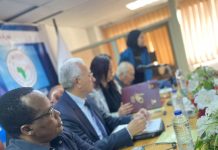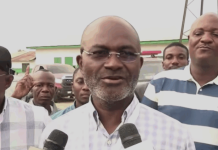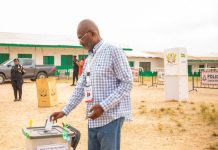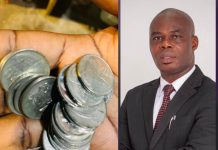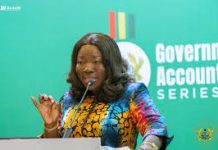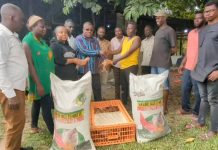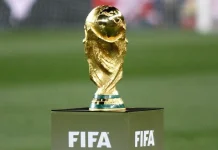On this momentous occasion, the Association of Women in the Media (ASWIM), is excited to join believers in a fairer world and fully developed world, across the globe, to celebrate all women across the globe for their laudable contributions towards sustaining their families, communities, nations and the world at large.
ASWIM, particularly , commends the unsung women in the remotest corners of the world, who tirelessly till the land to feed the world, and many others whose selflessness and sacrifices have culminated in them shattering the glass ceiling to make women’s efforts visible.
We also commend the numerous women who are survivors of heinous human rights abuses whose resilience and courage to speak up have given hope to others to break free for a sturdy development of the women’s front.
It is, indeed, worthy, that the International Women’s Day (March 8) has been marked annually since 1911, to celebrate the social, economic, cultural and political achievements of women and also to sound the clarion for action to accelerate gender parity.
This year’s celebration is on the theme: “I am Generation Equality: Realizing Women’s Rights”, with the hashtag, “ #EachforEqual”.
It recognises the need for a collective action to rekindle the struggle towards seeing women well represented as equal partners in all the formal decision-level spaces at the local, national and international levels, meant to advance the cause of humanity.
This is imperative because no society can achieve holistic development and peace for all of its citizens when there is an under representation of the concerns, perspectives, knowledge and expertise of women in the critical spheres of social, economic, business and political governance.
This year marks the 25th Anniversary of the Beijing Declaration and Platform for Action (1995), which among others , set a target of a minimum 30 percent threshold for the representation of women at all levels of decision-making to strengthen democratic governance and ensure the effective functioning of society.
ASWIM recognises that the efforts of women’s advocacy groups, governments, civil society organisations, the media, sheroes, among others, have since the advent of the Beijing Declaration created greater awareness on the importance of gender parity for just and better world. Indeed, there has been some success albeit limited.
Antonio Guterres, the Secretary-general of the United Nations, in his message to commemorate this year’s IWD, aptly underlined that: “Gender inequality is the overwhelming injustice of our age and the biggest human rights challenge we face.
“But gender equality offers solutions to some of the most intractable problems of our age.
“Everywhere, women are worse off than men – simply because they are women. The reality for women from minorities, older women, those with disabilities and women migrants and refugees is even worse.
“While we have seen enormous progress on women’s rights over recent decades, from the abolition of discriminatory laws to increased numbers of girls in school, we now face a powerful pushback”.
It is noteworthy, that, according to the UN, no country has achieved gender equality yet, but some have made greater strides than others.
Ghana’s movement for gender parity and empowerment has been quite steady through the years, with some measurable successes in the efforts at promoting girl-child education, discouraging child marriage, abolishing negative cultural practices against girls and women, enforcing the laws against the perpetrators of domestic violence and sexual offences.
While strengthening these achievements however, more action is required towards increasing the economic empowerment of women and increasing the representation of women at the decision-making levels in all spheres of public life.
One definite means of actualising these is the passage of the Lands Bill with the Gender Equality Social Inclusion Clauses intact; and the Affirmative Action Bill.
On the occasion of the IWD, ASWIM, therefore, makes a passionate appeal to our honourable Members of Parliament to strengthen their commitment towards the social, economic and political justice for Ghanaian women and girls by expediting action towards passing these Bills before they rise from the current session.
There is no doubt that when the barriers are cleared for women to fully participate in customary land administration and also receive their fair share of land resources in patriarchal societies, their economic empowerment will give them better participation in governance issues.
Similarly, an Affirmative Action Law will enable Ghana to meet the United Nation’s 30 percent minimum threshold required for women’s voices and contributions to count in making formal decisions at the local assembly, parliamentary and other spheres of public life.
ASWIM, therefore, renews it commitment to fully work towards the achievement of the Sustainable Development Goal 5, which reinforces the need to “Ensure women’s full and effective participation and equal opportunities for leadership at all levels of decision-making in political, economic and public life”.
ASWIM is also a firm believer in the principle that , ‘ An equal world is an enabled world’ and duly commits to the global campaign for #Each for equal, which is a call to work as individuals, yet collectively, to challenge the stereotypes, fight the biases, broaden perceptions and improve on situations to enhance the wellbeing of women and humankind.
Ayekoo to all women and champions of women’s empowerment.
Ghana | Atinkaonline.com



